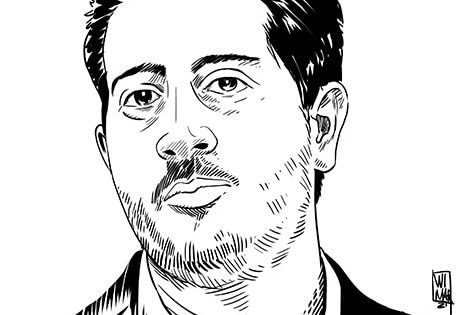(IAPA/IFEX) – The following is a 3 May 2001 IAPA press release: IAPA reiterates commitment to freedom of expression and the press in Cuba Text of independent journalist Raúl Rivero’s account of the drama of the alternative press on the island Miami (May 3, 2001) – The Inter American Press Association (IAPA), on World Press […]
(IAPA/IFEX) – The following is a 3 May 2001 IAPA press release:
IAPA reiterates commitment to freedom of expression and the press in Cuba
Text of independent journalist Raúl Rivero’s account of the drama of the alternative press on the island
Miami (May 3, 2001) – The Inter American Press Association (IAPA), on World Press Freedom Day, would like to share a message from its Regional Vice Chairman for Cuba, Raúl Rivero, who from Havana tells us about the vicissitudes of independent journalism and confirms that journalist Bernardo Arévalo Padron remains a prisoner for criminal contempt, the offense of insulting President Fidel Castro and Vice President Carlos Lage.
IAPA President, Danilo Arbilla, Búsqueda, Montevideo, Uruguay, as well as the Chairman of the Committee on Freedom of the Press and Information, Rafael Molina, Ahora, Santo Domingo, Dominican Republic, stated that, as it has been doing for 42 years, the hemispheric organization will continue its commitment to denouncing attacks against freedom of expression and demand that the right of all Cuban citizens to information, free from all State control, be respected.
The following is Rivero’s text that pays tribute to Cuban independent journalism.
Cuba: The Wake of Freedom of the Press
By Raúl Rivero
HAVANA-World Press Freedom Day this year is marked in Cuba by a jailed journalist and the same funereal atmosphere of the four-decades-long wake for the death of independent news.
This tenth edition of the day, adopted and implemented by the United Nations Educational, Scientific and Cultural Organization, like all those before it, passes unnoticed amid the tedious rush of the political propaganda that invades and dominates all the media.
The journalist who marks this day in jail is Bernardo Arévalo Padron. He is in a cell at Ariza Prison in central-southern Cuba, serving a six-year term for alleged criminal contempt of President Fidel Castro and Vice President Carlos Lage.
Released from prison in recent months were Joel de Jesús Díaz, a young reporter from Ciego de Avila, and Manuel González Castellanos, correspondent for the independent Cuba Press news agency in Manzanillo, eastern Cuba.
Arévalo, alone there on his straw mattress, places Cuba on the complex map of violators that have put journalists behind bars, putting our country alongside China, Vietnam, Iran, Turkey, Ethiopia, Burma, Uzbekistan and Nepal, among others.
This jailed Cuban journalist is a particular case. He works with a few dozen colleagues in a part of society that has been marginalized and persecuted by the police, a group that cannot publish in their country, that has no access to official information and that lives under the pressure of decrees, regulations and laws that empower the government to jail them with an air of legality.
They are the exception, a small force that seeks to restore legitimate journalism to the nation, while the police use a variety of repressive means to stop them from working.
For example, a reporter from Villa Clara, in central Cuba, was arrested as she went to cover a meeting of a human rights group. She was driven off in an official car and then left at the roadside some 125 miles from her home. It is usual for a reporter going to cover an event to be intercepted by the authorities and ordered to go away or spend two or three hours in a jail cell.
Since 1995, when the alternative press movement began to form, there have been unceasing individual pressures, threats and arrests, and although for the moment these have been lessening, there continue noisy, aggressive “repudiation” rallies outside the journalists’ homes, with insults, vexations and dangerous, unrestrained verbal (and sometimes not so verbal) violence.
So, there is just one journalist in prison, but the press itself is dead and in its place there exists the theatrical apparatus of totalitarianism, complete with journalists’ labor unions, TV newscasts, newspapers, magazines and radio broadcasts of self-serving news and features.
They are words and pictures of a country that has designed a governmental bureaucracy but has naturally left out large segments of the population that are dismayed at the death of press freedom.


